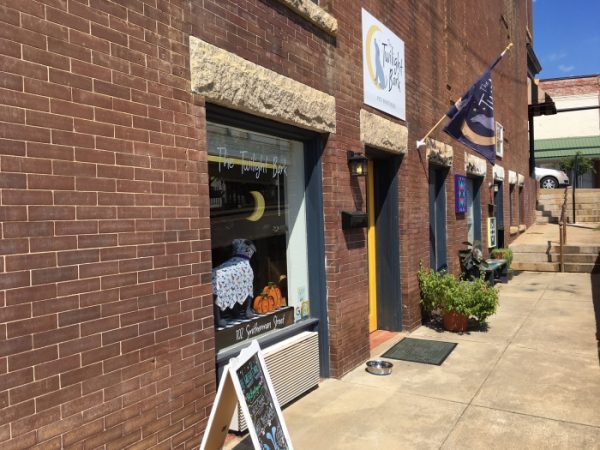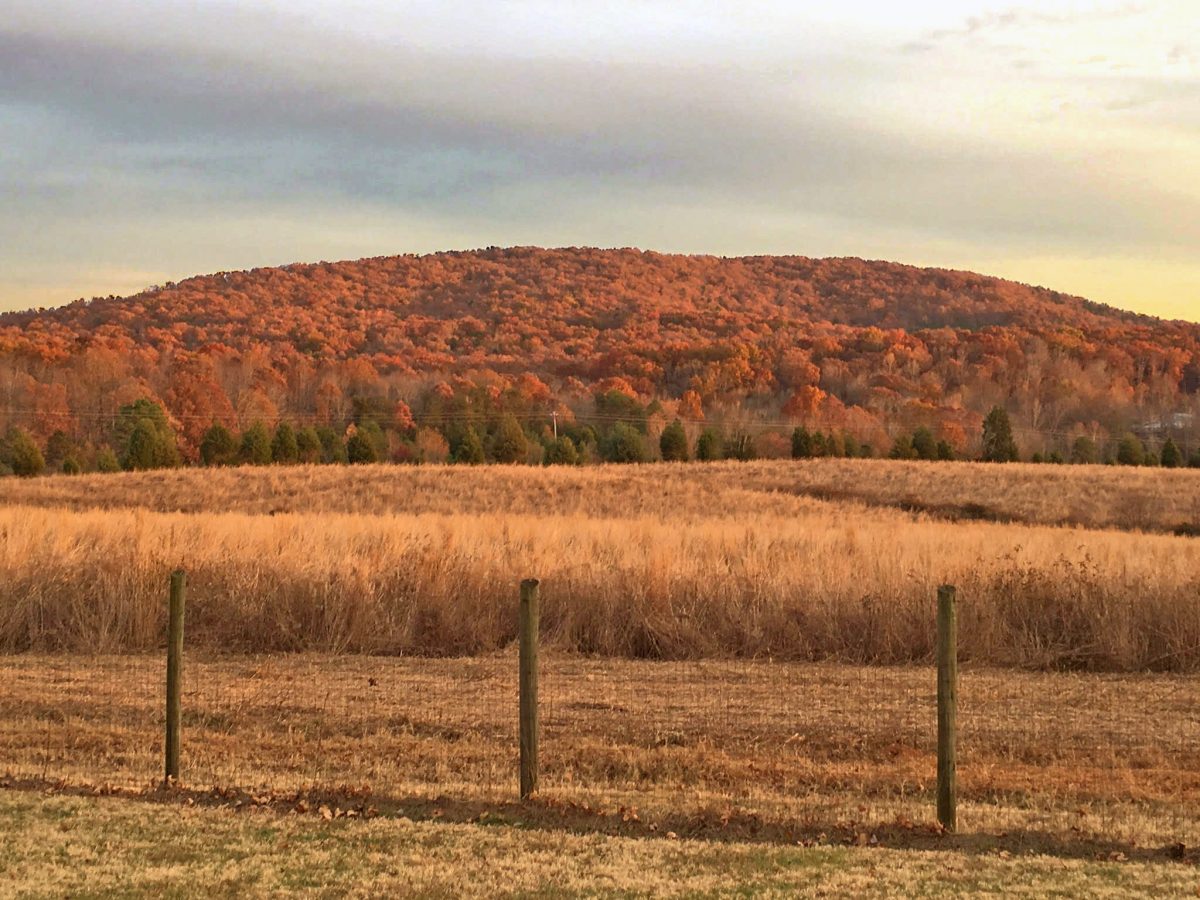Chappell Russell and Justin Foley: Trying to recreate the South End lifestyle in a rural town

This story is one of seven vignettes in the series Rural by Choice: Navigating Identity in the Uwharries.
Chappell Russell and Justin Foley were living the millennial dream. They met at Appalachian State. He worked for a large CPA firm in uptown Charlotte. She helped run a small dog-training business. They had an apartment in South End. On weekends, they walked their dogs Oliver and Indie on the Rail Trail, stopping at breweries and local shops like the Canine Café.
After getting married and moving into a home in Steele Creek, they longed for more space — but soon realized they’d never be able to afford a home on a large tract of land anywhere in Mecklenburg County. Chappell had grown up in Troy and Justin in Asheboro. Even though they enjoyed urban amenities, they weren’t opposed to returning to a small town in the Uwharries.

Chappell Russell Foley
Chappell started trawling real estate sites. Soon, she learned a family she knew was selling a home that seemed perfect. The 1950s ranch had great bones and good updates, and it sat on six acres within a mile of downtown Troy. Their main concern was Justin’s commute. He thought the house was worth it, but within a year, spending three to four hours in the car each day began to wear thin. He moved to a smaller CPA firm in Lexington, an easy 45-minute drive.
Chappell started training dogs for friends, as well as selling pet supplies online and at pop up shops during festivals like TroyFest, Ten Days of Uwharrie and the Candor Peach Festival. Reviewing her sales, she realized the vast majority of her customers lived in Montgomery County. When the owners of the new coffee shop, Uwharrie Mercantile, offered her a space in the former Hotel Troy, she took the plunge and opened a brick and mortar store.
Chappell understands the risks of opening a business in a small town, but she also appreciates the opportunities. The space is better, the location is stable and the rent is cheaper.
“It also helps because people know me and trust me,” she said. “That would have been harder to establish in Charlotte.”
The name of her store, The Twilight Bark, comes from a line in one of her favorite movies, 101 Dalmatians. Chappell interprets it to mean “word of mouth” among dogs, reinforcing her focus on community connections.
“Sometimes people just stop by to visit or come in for a little advice,” she said. Many have their dog pose for a photo on her brightly upholstered sofa, then see it posted on The Twilight Bark’s Facebook page. A group of older ladies like to stop in after lunch at Crawford’s Diner, even if they don’t have dogs themselves. One recently said, “My granddaughter has a Yorkie. Can you help me pick out something for her?”

This is one of seven vignettes about people who choose to make their lives in rural areas outside of Charlotte. Read the other parts of “Rural by Choice” online.
“It feels like Floyd’s barbershop,” Chappell said, referencing that community gathering place in Mayberry.
She enjoys the energy and foot traffic created by the concerts and movies at the new Town Stage Amphitheater just down the street. But she does miss the nightlife in Charlotte.
“It’s important for people my age,” she said.
While she’s really not a beer-drinker, she thinks it would be nice if the town had a brewery or another place people could congregate, especially with their dogs.
Chappell and Justin often walk their dogs downtown in the evening, an activity that’s reminiscent of their life in South End. Chappell envisions a future in which a small, rural town offers more aspects of an urban lifestyle while preserving the genuine, personal feel that city neighborhoods are striving to achieve.